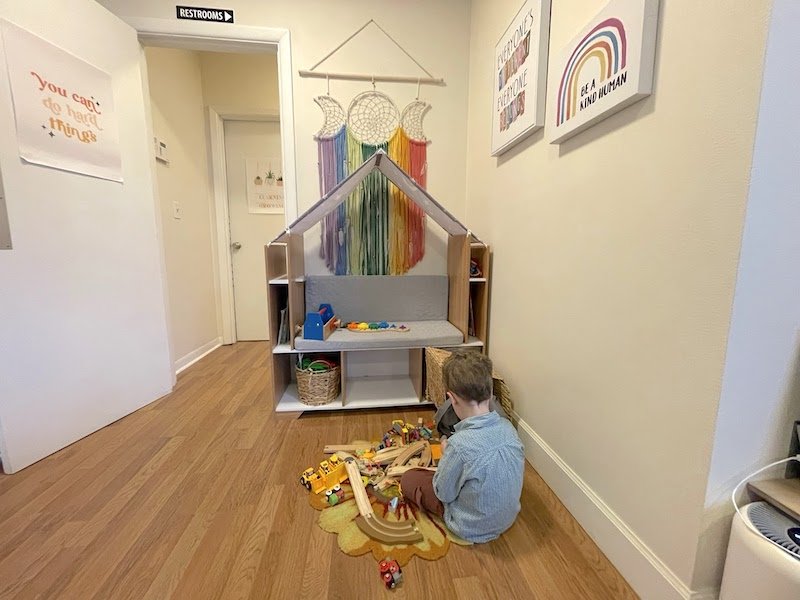Speech Delay Assessment Test
You can start spotting speech delay as early as 6–12 months, though more definitive signs become clear by waiting until 18–24 months of age to do an official assessment.
If you’d like to conduct a high-level speech delay assessment at home, our Speech Language Pathologists have put together a list of signs and common assessment tools/tests, broken down by age and different developmental stages.
Jump to the right section for your speech delay evaluation
Age 1 (12 Months Old) | Age 2–3 (Toddlers) | Age 4–5 (Preschoolers)
Baby Speech Delay Assessment:
Age 1 (Around 12 Months)
Possible Signs of Speech Delay at 1 year old:
Not babbling (e.g., “ba-ba,” “da-da”)
Not using gestures (e.g., waving, pointing)
Does not respond to name
Doesn’t attempt to imitate sounds
Limited eye contact or social interaction
Common Speech Delay Tests at 1 year old:
Ages and Stages Questionnaire (ASQ-3) – parent-report developmental screener
Hearing Test – to rule out hearing loss
Observation of Play and Social Interaction – by a speech-language pathologist (SLP)
Toddler Speech Delay Assessment:
Age 2–3 (Toddlers)
Possible Signs of Speech Delay at 2-3 years old:
Fewer than 50 words by age 2
Not combining two words by 24–30 months
Hard to understand even by familiar adults
Echolalia (repeating instead of generating language)
Doesn’t follow simple directions (e.g., “Give me the ball”)
Common Speech Delay Tests for Toddlers:
Rossetti Infant-Toddler Language Scale – criterion-referenced, includes observation and caregiver report
Hearing Screening
Preschool Speech Delay Assessment:
Age 4–5 (Preschoolers)
Possible Signs of Speech Delay at 4-5 year old:
Not speaking in full sentences
Poor grammar (e.g., “He go to park”)
Speech is hard to understand by unfamiliar listeners
Trouble telling a story or answering “why”/“how” questions
Limited vocabulary for age
Frustration with communication
Common Speech Delay Tests for preschoolers:
Clinical Evaluation of Language Fundamentals – Preschool (CELF-P2) – for receptive/expressive language
Goldman-Fristoe Test of Articulation (GFTA-3) – to assess speech sound production
Dynamic Assessment – how the child learns new words or concepts with support
When to seek professional help for speech delay
If a child shows several of these signs of speech delay or you’re unsure, it’s best to talk to your pediatrician as soon as you can and request a referral to an SLP to conduct a formal speech-language evaluation or screening from.
NOTE: If your child is under 3 years old, we highly recommend seeking contact with Early Intervention (EI) services.



